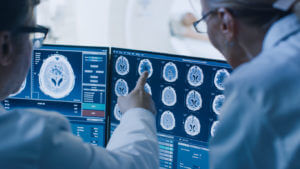Lightheadedness, feeling woozy and unbalanced, a sensation of movement of yourself or everything around you – there are many ways to describe dizziness. Experiencing it can be more disconcerting than just a temporary loss of your bearings if it is accompanied by nausea, vomiting, or the sense that you are about to faint. Dizziness is
Read MoreCauses of Stress Headaches
Headaches can vary from slight aches to sharp, throbbing pain. However, tension headaches – also called stress headaches – tend to be particularly severe and debilitating. It is estimated that more than 60% of Americans suffer from stress headaches, and they are more prevalent in women than in men. Tension headaches may be episodic or
Read MoreLiving With Seizure Disorder
Seizure disorder, or epilepsy, is a neurological condition in which electrical impulses in the brain become uncontrolled, causing seizures. People living with seizure disorder can live full, active lives with the help of medications. Seizure disorder affects people of all ethnic backgrounds, ages, and races. To be diagnosed with seizure disorder, you need to have
Read MoreHow Do You Treat a Stress Headache?
Do you suffer from headaches brought about by stress? Most people describe stress headaches as feeling like a tight band around their heads. The causes of stress headaches vary and are affected by many different factors, not all of which are completely understood. After all, everyone deals with some sort of stress, but not everyone
Read MoreDifferent Symptoms of Seizures
A seizure is a telltale sign of a neurological condition. It can affect a person’s behavior, movement, or consciousness for a few seconds to minutes. While a seizure can happen after a stroke, head injury, or infection, it can occur without warning, too. Read on to learn more about what seizures are and their symptoms
Read MoreSymptoms of Seizures and Epilepsy, and How to Tell the Difference
Epilepsy and seizure symptoms can be very similar, making it challenging to differentiate between the two conditions. These conditions are connected, but they are not the same. Proper diagnosis of whether you have seizures or epilepsy is vital for getting appropriate treatment. What are the Symptoms of a Seizure? A seizure is a sudden and
Read MoreTreatment Options for Cervical Dystonia
Cervical dystonia, also known as spasmodic torticollis, is a rare disorder that usually affects middle-aged individuals, particularly women. The condition causes the neck muscles to involuntarily contract and the head to uncontrollably tilt either backward or forward. Cervical dystonia is predominantly progressive in nature: in most patients, the disease substantially gets worse over time, but
Read MoreWhat are the symptoms of a focal seizure?
Focal seizures are a type of seizure commonly experienced by people with epilepsy. Although people who have a brain infection or tumor, or have had an injury or stroke, can experience these, too. A seizure happens if there is a surge of electrical activity in the brain due to nerves firing out sudden and excessive
Read MoreTreatment Options For Hemifacial Spasms
Hemifacial spasms are a condition marked by the involuntary twitching of facial muscles. The word “hemifacial” means that this condition affects one side of the face. In some cases, these twitches leave patients unable to control their facial expressions. Hemifacial spasms may come and go, or they can occur constantly. There are several causes behind
Read MoreWhat is MRI Imaging Used For?
Magnetic resonance imaging (MRI) is a medical imaging technique that uses a powerful magnet, radio waves, and a computer to produce images of what’s inside the body. It is safer than other diagnostic tests, as it does not use radiation. For the test, the patient lies on a table that slides into a hollow tube.
Read More











